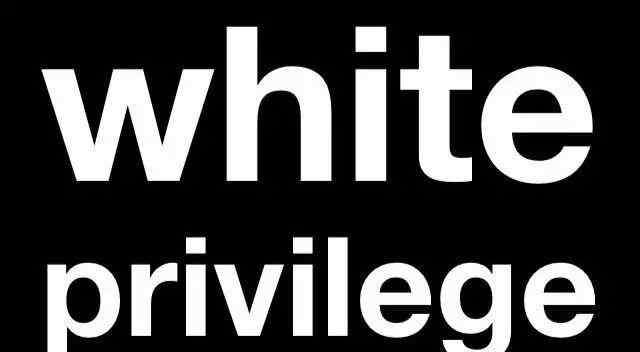中国素来是礼仪之邦。从小念着“有朋自远方来不亦乐乎”的中国人,大多非常热情好客。
但是,热情好客是一回事,纵容老外“作”就是另一回事了……
最近,一枚加拿大汉纸给我们投稿,感慨了下“白人特权”这个词。

那么这种情况,在中国会有吗?

这枚汉纸觉得,可能不光是白人,大多数老外在上海都有意无意间会被“特殊照顾”。或许,这个词在上海可以延伸为“老外特权”。


为了验证,这枚加拿大小哥做了一件事,然后写了下面这篇文章……
来看看他想说什么吧——
无论何时何地,“白人特权”这个词都是口引战的好锅——无论是觥筹交错的晚宴上,亦或是挥舞社会公平大旗的运动中,一提这词,必激起掐架撕X无数。
The term "white privilege" is one that is guaranteed to raise hackles and set teeth on edge in any conversation at the outer fringes of dinner parties or in the trenches of the modern social justice movement across the globe.
“白人特权”这个词是2013年左右出现的。简单粗暴来说呢,就是指欧洲北美一带的白种人以自己的肤色+历史上曾经很拽,会得到许多不劳而获的权利或优越感来。
In a nutshell white privilege, a term coined around 2013, is the idea that being born either Caucasian or into the socially dominant strata of Europe or North America grants that person unearned privileges based on their skin or historical ascendancy.
那么问题来了:上海的白人也会有“特权”吗?这种特权会这里的本地人和老外产生某些微妙的负面影响吗?好咯,的确如此。虽然这和种族本身没多大关系,但这种优越的确对上海产生了一定的伤害啊。
So does white privilege exist in Shanghai? And does it affect the day-to-day lives of foreign residents and locals in subtle or negative ways? Resoundingly: yes. It may have less to do with race, but it is a destructive force in this city that isn't acknowledged.
我刚来这里时,还不会直接把这现象叫做“白人特权”,至少会用个“老外特权”这类稍微温和一点儿的、没那么极端的词。
In my early days here, I would never have called it white privilege, instead choosing to refer to it in the seemingly more benign and less polarizing "foreigner privilege."
可是,许多社会行为的基本规则都似乎都对咱老外不起作用了。从西方老家各种条条框框的约束中释放出来,在中国一下拥有了近似于无拘无束的体验——惊不惊喜?开不开心??
At its heart is the idea that the normal rules of social behavior don't apply to we foreigners.Suddenly released from the strictures and rules of life back home, many foreigners undertake a conversion to hedonism not found in the West's comfortable suburban existence.
怎么个无拘无束法呢?比方说,我可以拎着一瓶开了啤酒大摇大摆走在街上,没有任何人会来管我。这样的后果是啥?喝得醉醺醺,然后跟当地人对骂甚至起了肢体冲突……惭不惭愧?更有甚者,把“撒泼”那套带入商业活动中,闹得信用扫地、财产受损、官司缠身。任何一个文明的国家都不会允许这些撒泼耍赖,那么凭什么你是老外,你就可以为所欲为?
What begins as "hey, I can walk down the street with an open can of lager and nobody will bother me," eventually ends in a physical confrontation or screaming match with the natives. Or worse, business behavior thatwouldn't pass muster in any civilized countryresults in broken promises, financial loss and lengthy prosecutions.
几年前有这么个事儿:一个加拿大所谓艺术家,诈骗了许多房客的租房押金,还牵扯出了一系列的租房诈骗案。这和“白人特权”一点关系也没有吗?我看不尽然。
It's possible that the case of a Canadian con artist who swindled many apartment renters out of their deposits in a string of serial home rental scams years back may not have had anything to do with white privilege, but wiser instincts inform me that it probably did.
好吧,我也得坦白,刚来上海那阵子我的确也带着那么一丝丝侥幸。当我带着初来乍到的好奇游走于这座城市的老街巷中,常常会有居委会的人站在一边盯着我,仿佛时时刻刻要赶我走。
I must guiltily admit to taking advantage of this permissiveness during my early days in Shanghai when I explored the city's old laneways in my initial rush of curiosity. In many instances the neighborhood residents committee standing watch at the front gates halfheartedly tried to shoo me away.
是咯,怀揣着那丝“或许我是不一样的”的侥幸,我有时会故意一不小心闯入别人家中——谁叫这里很多人都把家门开着嘛。然而每次,面对我这个闯入私宅的不速之客,屋子的主人不但没有立马轰我走,而是热情地拉着我一起磕磕瓜子嘎嘎山湖本站。如果在西方社会,我估计早就被人以乱闯私宅、破坏隐私等理由给骂死了。
With an ignorance that was not entirely feigned, I sometimes played dumb while "accidentally" wandering into residents' always-open doors.Without exception, any locals I bumped into were delighted to chat with me over a plate of melon seeds, but it never would have gotten that far had I adhered to Western rules about private property.
好吧……虽然我“私闯民宅”的用意是无辜的,但或许我的行为就助长了他人对歪果仁的刻板印象:这些老外就是无视规矩的存在!就算本意再好,大家再不承认某些特权的存在,可你一旦无意间“滥用”了这些特权,或多或少都会造成不好的影响。
But while I considered my intentions to be entirely innocent, it still perpetuated the stereotype of foreign visitors who think themselves to be above the rules. For every good intention, there is something toxic and degrading about living in a state of constant privilege that is unacknowledged by both the guest and the host.
热情好客的基因是深刻于上海的骨子里的。这座城市开放包容,海纳百川,对外来者也没有太多约束和限制,似乎人人都能在此自在生活。而这,也在不经意间成为了助长“白人特权”“老外特权”的帮凶。
I realize the futility of tilting against windmills on this specific issue in this particular city. Being hospitable is encoded in Shanghai's DNA. It is a metropolis that has always looked outward and welcomed newcomers into its heart with few if any restrictions or expectations that guests need abide by.
而上海居民的“标配”呢,似乎就该是有礼貌、有耐心、深谙儒家之道的谦谦君子。他们行走于魔都的茫茫人海间,为外来的人指引方向,提供帮助,深藏功与名。然而,对于外来者而言,咱们可千万别认为人家的好态度是理所应当的。人家对你nice一点,你反而得了便宜还卖乖,这岂不是更加加深了公众对所谓“本站特权”的误解、更会引起公愤了么?
The default setting of the typical Shanghai resident is politeness, tolerance and Confucian morals that run deep in the population, guiding the treatment of foreign and domestic visitors. As guests and sojourners, however, we need to be mindful of how such attitudes can lead to a skewed power imbalance while causing resentment in others who may not be able to share in the resultant rewards of our "privilege."

原文:John Harold Armstrong
翻译:lanlan
图:Lu Ting、网络
1.《guiltily 白人在中国是不是有“特权”?有老外在上海做了一个实验,结果……》援引自互联网,旨在传递更多网络信息知识,仅代表作者本人观点,与本网站无关,侵删请联系页脚下方联系方式。
2.《guiltily 白人在中国是不是有“特权”?有老外在上海做了一个实验,结果……》仅供读者参考,本网站未对该内容进行证实,对其原创性、真实性、完整性、及时性不作任何保证。
3.文章转载时请保留本站内容来源地址,https://www.lu-xu.com/junshi/157086.html